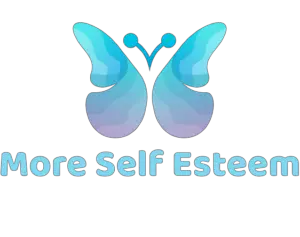Having suffered from mental health and self esteem issues such as depression, shyness and a lack of self-confidence, and after writing about this for many years, I’ve written this page to help you understand how your self esteem and mental health are connected.
Improving your mental health and self esteem is about supporting yourself to find inner strength. Your mental health can be affected by your self-esteem, and both can affect your happiness and success in life. Building self-esteem can protect you from mental health issues such as depression.
Click here for inspiration and motivation – hypnosis downloads that can change your mindset and mental health
As we go through this article, I will show you how your self esteem and mental health are connected, and offer you ideas that will build your self esteem and confidence and make a huge positive change in your life. Are you ready?
A Definition of Mental Health
“a state of well-being in which every individual realizes his or her own potential, can cope with the normal stresses of life, can work productively and fruitfully, and is able to contribute to his or her community”
World Health Organisation – source
From the above definition we can understand that according to WHO, mental health and self esteem must be related, because it is only with a health level of self-esteem that a person can reach their potential and positively contribute to society.
Low Self Esteem and Mental Health Problems are Connected
Low self esteem is not a mental health problem in itself, but continued low self esteem can lead to mental health issues such as depression, anxiety and eating disorders (see this article by Man et al. 2004). Therefore, the article cited above continues, building your self esteem can protect your mental and also your physical health.
This article also shows the link between self-esteem and mental health is shown to be quite clear, in particular, for depression.
Another interesting study found that women who were pregnant could be checked for low self esteem in order to determine if they were experiencing psychological problems such as depression or anxiety in their pregnancy. This finding is really helpful and is yet another reason why self esteem is a central core of mental health.
Our childhood and adolescence is an important time in our development of self-concept. Healthy self esteem plays an important role in mental health during this period (Moksnes and Reidunsdatter, 2019).
So, one of the best ways to improve mental health is to build self esteem. So let’s move on to find out how you might do this.
There is Beauty Inside You
Our modern world is filled with dangers and bad news but you can only control what is inside of you. Why not make your inner world one of peace and beauty? Filling your mind and imagination with goodness and peaceful thoughts can create a positive atmosphere inside you. Do it.
Don’t only look in the mirror and see what is on the outside. You are so much more than your external appearance. Your character, your personality, your experience, your history, the stories you have to tell, the strange quirks you have, your likes and dislikes and your interests and talents are all unique to you. Accept yourself as truly different and uniquely you!
One of the most important factors in your self esteem is learning to appreciate who you are. This can only happen if you take the time to get to know yourself better. One way to get into touch with your own feelings and values is through a technique that involves touch. If you are interested in finding out more how this works the process and benefits are explained here: Bloch Healing Touch Psychotherapy in Cheshire and Manchester. This technique is particularly useful for those who are not able to benefit from talk therapy such as the disabled.
How to Improve Your Mental Health and Self Esteem
As Sobhi-Gharamalekia and Rajabi (2010) explain, learning certain life skills can boost self esteem and improve mental health. The life skills mentioned in the article are:
- communication skills
- ability to make effective decisions
- developing strong personal relationships
- problem solving
- critical thinking
- creativity
- self-awareness
- ability to sympathise with others
- positive management of emotions
- coping with stress
The above skills enable a person to develop confidence and cope with many challenges that life presents. These skills can improve mental health and self esteem, but also improve physical health. Training in these skills also reduces anxiety, depression and social problems.
It is clear that this list of life skills covers many different aspects of coping strategies and would involve a lot of training and practice to develop. I suggest that anyone wanting to improve their mental health should focus on one area at a time and practise in daily life, taking confidence from small successes. This will require guidance from a professional, perhaps a therapist or even a qualified life coach. Learn more about how a self esteem coach will help you in your search for personal growth.
It has also been suggested that teachers can include some of these life skills as part of their teaching and this is called the Infusion Method (see Smith et al. 2004). Teachers will need training for this but seem ideal people to do this as they see their students several times a week and could include group work and set suitable tasks for students to carry out and then give feedback.
There are things you can do yourself to improve your mental health
Here are a few suggestions that you can try:
- Smile and laugh more – it’s not difficult is it? However, it will make a big difference.
- Don’t take yourself or life so seriously. This is connected with the previous point. Enjoy life.
- Realize that if you fail, it is not the end of the world. Failure is often a stepping stone towards success and everybody goes through difficulties in order to succeed.
- Walk whenever you can, (for exercise but also because your brain needs fresh air). Don’t travel so fast that you miss the life and beauty all around you.
- Dream about new possibilities. Positivity and hope only exist if you dream.
- Reflect on your successes and believe in yourself. Look at what you have already done to get this far!
- Do things you love as often as possible. Bring passion into your life whenever you are able to choose to do what you truly want.
- Welcome new challenges and experiences. Focus on what is right, rather than what is wrong with you or your life. Work on your self-confidence.
The Importance of Self-Confidence for Your Mental Health
Build your Self Confidence – Hypnosis downloads – quick, easy and guaranteed to help you build your confidence (prepared by experienced psychologists and gets my full recommendation).
Art therapy can help promote self-confidence and well-being
There is some research that suggests that art therapy programs can boost self confidence and improve mental health and well-being. This study interviewed participants in an art therapy program and found that many reported that their self confidence had improved significantly because of the classes in art they had attended.
One of the reasons given for the success of art classes, by those in the above study, was that they had benefitted from being included in a group and this had social benefits. Often, mental health problems are experienced by those who feel excluded, so feeling part of a group with a shared interest helps to improve both self-confidence and mental health.
In addition, art offers an opportunity to express yourself. Often those who suffer from mental health problems have issues with expressing themselves socially. Art seems to be a great healer for the mind and soul!
Highly Recommended
What’s the Secret of Self Confidence? Get my latest audio “A More Confident You” and find out…It’s on special offer right now and instantly downloadable.
References
- Bolognini, M., Plancherel, B., Bettschart, W., & Halfon, O. (1996). Self-esteem and mental health in early adolescence: Development and gender differences. Journal of adolescence, 19(3), 233-245.
- Heenan, D. (2006). Art as therapy: an effective way of promoting positive mental health?. Disability & Society, 21(2), 179-191.
- Michal (Michelle) Mann, Clemens M. H. Hosman, Herman P. Schaalma, Nanne K. de Vries. (2004). Self-esteem in a broad-spectrum approach for mental health promotion, Health Education Research, Volume 19, Issue 4, Pages 357–372, https://doi.org/10.1093/her/cyg041
- Moksnes, U. K., & Reidunsdatter, R. J. (2019). Self-esteem and mental health in adolescents–level and stability during a school year. Norsk Epidemiologi, 28(1-2).
- Smith, E. A., Swisher, J. D., Vicary, J. R., Bechtel, L. J., Minner, D., Henry, K. L., & Palmer, R. (2004). Evaluation of life skills training and infused-life skills training in a rural setting: Outcomes at two years. Journal of Alcohol and Drug Education, 48(1), 51-70.
- Sobhi-Gharamaleki, N., & Rajabi, S. (2010). Efficacy of life skills training on increase of mental health and self esteem of the students. Procedia-Social and Behavioral Sciences, 5, 1818-1822.
- World Health Organisation. (ND). WHO urges more investments, services for mental health. https://www.who.int/mental_health/who_urges_investment/en/



